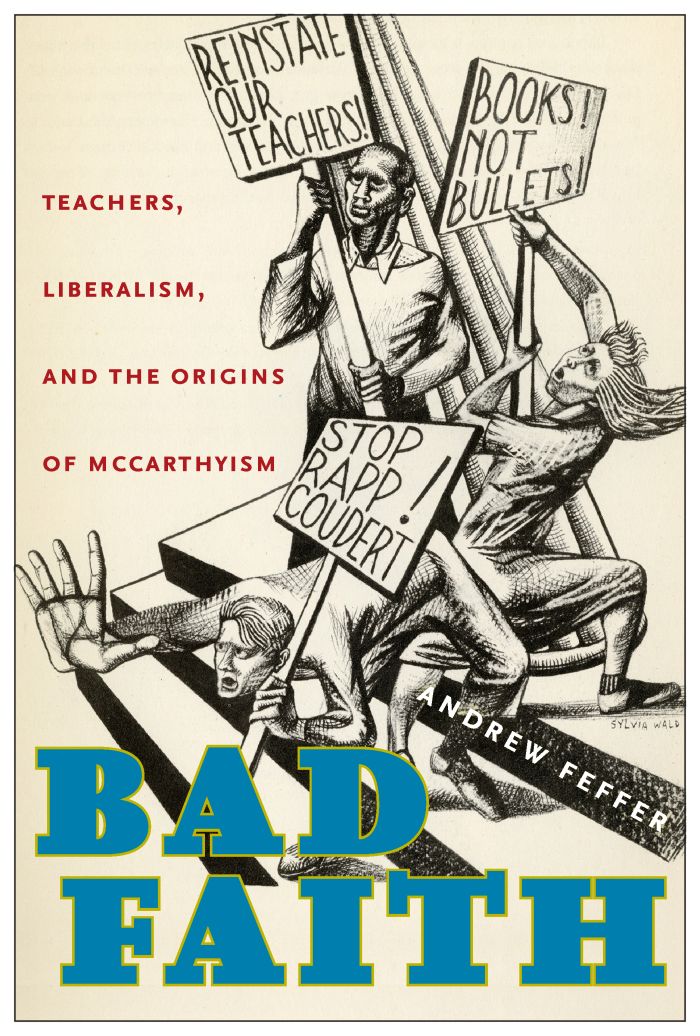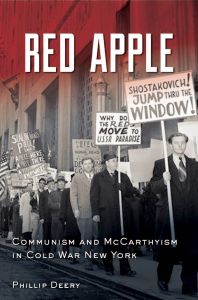Bad Faith
Teachers, Liberalism, and the Origins of McCarthyism

This book can be opened with

In late summer 1940, as war spread across Europe and as the nation pulled itself out of the Great Depression, an anticommunist hysteria convulsed New York City. Targeting the city’s municipal colleges and public schools, the New York state legislature’s Rapp-Coudert investigation dragged hundreds of suspects before public and private tribunals to root out a perceived communist conspiracy to hijack the city’s teachers unions, subvert public education, and indoctrinate the nation’s youth.
Drawing on the vast archive of Rapp-Coudert records, Bad Faith provides the first full history of this witch-hunt, which lasted from August 1940 to March 1942. Anticipating McCarthyism and making it possible, the episode would have repercussions for decades to come.
In recapturing this moment in the history of prewar anticommunism, Bad Faith challenges assumptions about the origins of McCarthyism, the liberal political tradition, and the role of anticommunism in modern American life. With roots in the city’s political culture, Rapp-Coudert enjoyed the support of not only conservatives but also key liberal reformers and intellectuals who, well before the Cold War raised threats to national security, joined in accusing communists of “bad faith” and branded them enemies of American democracy.
Exploring fundamental schisms between liberals and communists, Bad Faith uncovers a dark, “countersubversive” side of liberalism, which involved charges of misrepresentation, lying, and deception, and led many liberals to argue that the communist left should be excluded from American educational institutions and political life. This study of the Rapp-Coudert inquisition raises difficult questions about the good faith of the many liberals willing to aid and endorse the emerging Red scare, as they sacrificed principles of open debate and academic freedom in the interest of achieving what they believed would be effective modern government based on bipartisanship and a new and seemingly permanent economic prosperity.
Thoroughly researched and well-written, Bad Faith is an original and brilliant narrative history of the impact of anticommunism on New York City municipal colleges and public schools during the mid-twentieth-century.—Erik S. McDuffie, University of Illinois at Urbana-Champaign
Ground-breaking and insightful. Bad Faith makes important contributions to our knowledge of mid-twentieth century America, in particular its history of political repression, the union movement among teachers, and the roots of McCarthyism in the anti-communist liberalism of 1930 and 40s. A prodigious work of scholarship.—Marjorie Heins, Priests of Our Democracy: The Supreme Court, Academic Freedom, and the Anti-Communist Purge
...when the Rapp-Coudert committee hearings get underway in New York City’s federal courthouse in October 1940... Seven hundred teachers and school personnel will be questioned–and scores of City College professors fired—in a purge of the New York City school system cheered on by the New York Times and the rest of the city’s media. Bad Faith: Teachers, Liberalism, and the Origins of McCarthyism, by Andrew Feffer, is a thoroughgoing examination of this two-year inquisition authorized by the state legislature.—CounterPunch
Feffer... captures the mania of the time, and it will shock readers as it details this dark time in our history.—The Times Union
Introduction 1
PART I: The Hearings
1 The Threshold 21
2 The Stooge Grebanier 36
3 Coudertism 54
4 Vichy’s Lawyer? 70
PART II: Class War
5 The Dewey Trial 85
6 The Educational Front 108
7 Far from the Ivory Tower 129
PART III: The Mortal Storm
8 Bad Faith 149
9 CCNY 174
10 Flirting with the Right 195
11 Communism on Trial 212
12 Aftermath 227
Conclusion: The Coudert Legacy 241
Acknowledgments 255
Abbreviations Used in the Endnotes 259
Notes 265
Index 317


